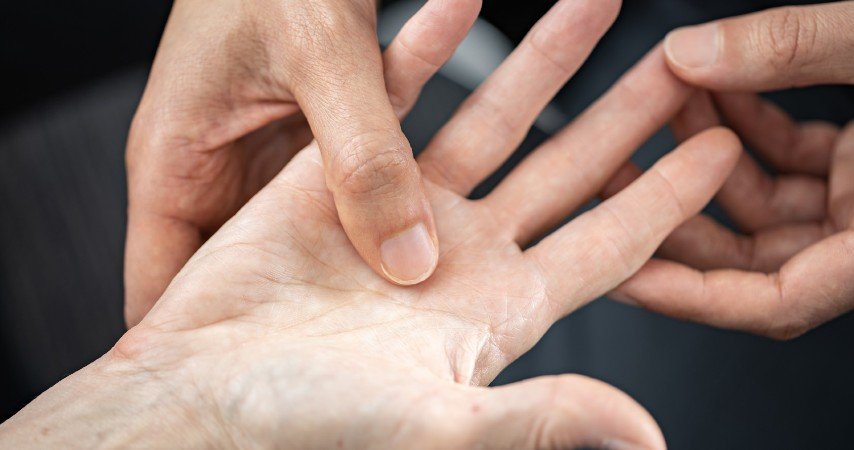
Carpal tunnel syndrome is a condition involving compression of the median nerve at the wrist.
The median nerve is a main nerve which contributes to sensation and grip strength of the hand. As the nerve passes from the forearm into the hand it passes through a tunnel formed by the wrist bones at the back of the wrist and a fibrous band at the front of the wrist. In carpal tunnel syndrome the median nerve is abnormally compressed as it passes through this tunnel.
This can lead to symptoms such as pain and tingling in the hand and fingers which can occur both during the day and night. In severe cases this can also cause weakness of grip.
Carpal tunnel syndrome can usually be diagnosed based on clinical examination and is often confirmed by nerve conduction studies.
Treatment of carpal tunnel syndrome depends on the duration and severity of symptoms. In mild cases it may be managed by wearing a splint at night to relieve symptoms. However, in many cases surgery is indicated to relieve the compression on the median nerve. This involves releasing the fibrous band at the front of the wrist that places pressure over the nerve.
A consultation with your plastic surgeon will enable personalisation of the procedure and care to your unique situation.
Surgery is usually performed as day surgery under either local anaesthetic and sedation or local anaesthetic alone. If you are having sedation, you will need to fast on the day of surgery, and organise a support person to take you home and be around to help in the first few days after surgery.
After surgery, your hand will be wrapped in a bandage for comfort. After a few days, you will be able to remove this and start to move your fingers and use your hand for light activities.
A post-operative appointment will be organised for you to see your plastic surgeon 1-2 weeks after surgery to check your wounds, remove sutures and provide advice to care for your hand as you recover. Generally you will not be able to drive for 2 weeks after surgery and will need between 2-4 weeks off work depending on your type of work (manual work vs office based work).
Resolution of symptoms of carpal tunnel syndrome is related to their duration and severity. In general, symptoms of pain will resolve within a few days after surgery once the nerve compression is relieved. Symptoms of numbness and tingling can take longer to resolve.
All operations have risks, though major complications are rare after carpal tunnel surgery. There is a small risk of concerns that may delay healing and require a little extra care (eg minor bleeding, infection, or over active or sensitive scars). Very rarely there is a risk of injury to the median nerve or one of its branches. Very rarely there is a risk the fibrous band may not be completely released which may lead to ongoing compression of the median nerve.
These risks may vary depending on your specific situation and will be discussed with you at your consultation. Please feel reassured that your plastic surgeon will only recommend surgery if they feel that the benefit of the procedure substantially outweigh the risks.
If you have carpal tunnel syndrome, the majority of the cost is rebatable through Medicare and standard private health insurance. This does require a referral from your family doctor.
After your consultation, a detailed quote will be provided to you including the surgeon fee, anaesthetic fee and hospital fee.
You can use this form to request a call back.
Please be aware that all surgical procedures require a consultation with our plastic surgeons to allow a thorough assessment and discussion of your specific needs.





